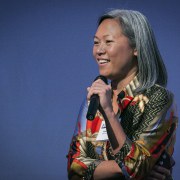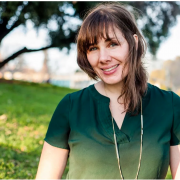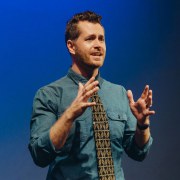Thinking about data: embracing data ethics, data literacy and data humanism
How can we help individuals and communities articulate their values about data ethics and privacy and help them build basic skills for critical thinking, while seeing the beauty within it? Museums are uniquely positioned to help visitors think freely and empathetically with and about data. Over 90% of the data that has ever existed was collected in the last two years; a growth driven by our use of smart devices collecting our data as we go about our daily lives. To live in a world dominated by data, we have to speak the language of it. We need skills to identify "data humanism:” the human stories within data and the thoughtful judgements about how data is made.
Our speakers will discuss how they have embraced the challenge of creating exhibits on data and panelists will share the challenges and lessons learned before inviting the audience to explore questions of data humanism.
Facilitator
Director of Operations and Strategy
Session speakers
Lead Content Developer and Coordinator
University of California, Berkeley
Oakland, CA
United States
Maps are a tool for visualizing spatial data - and so much more! Maps are in our phones, our transit systems, and our news media. Their ubiquity makes them a valuable tool for exploring questions about data in general, such as: what data was left out of this map? Or “for what purpose was this map made?” Sarah Seiter will present on her recent show on cartography at the Oakland Museum of California that leverages maps as a tool for thinking about data.
New York City
United States
My contribution to the panel will focus on data visualization. Data visualization isn’t about simplification, it's about clarity. Taking complex ideas and presenting them so the viewer can better appreciate the nuance of information-rich narratives and embrace new ideas. More information isn't always the answer; audiences need context. What is the role of data in facilitating discussion and individual reflection? How do we visualize ideas for which there are no clear solutions or outcomes?
Head of Cultural and Commercial Partnerships
Maren Krumdieck is the Head of Cultural and Commercial Partnerships at the Science Museum Group. She will be presenting on recent exhibitions from the Science Museum Group that cover contemporary science with ‘hot topic’ angles. Exploring trends and issues around internet-connected devices, data collection and presentation is a key issue to discuss in public life. What is the museum’s responsibility to our visitors as we explore ideas around bias, privacy through both historical and contemporary examples?




